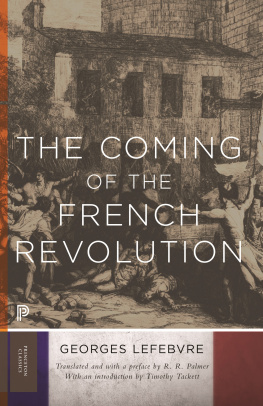Bel Ami; Or, The History of a Scoundrel
A Novel
Guy de Maupassant
After changing his fivefranc piece Georges Duroy left the restaurant. He twisted his mustache in military style and cast a rapid, sweeping glance upon the diners, among whom were three saleswomen, an untidy musicteacher of uncertain age, and two women with their husbands.
When he reached the sidewalk, he paused to consider what route he should take. It was the twentyeighth of June and he had only three francs in his pocket to last him the remainder of the month. That meant two dinners and no lunches, or two lunches and no dinners, according to choice. As he pondered upon this unpleasant state of affairs, he sauntered down Rue Notre Dame de Lorette, preserving his military air and carriage, and rudely jostled the people upon the streets in order to clear a path for himself. He appeared to be hostile to the passersby, and even to the houses, the entire city.
Tall, wellbuilt, fair, with blue eyes, a curled mustache, hair naturally wavy and parted in the middle, he recalled the hero of the popular romances.
It was one of those sultry, Parisian evenings when not a breath of air is stirring; the sewers exhaled poisonous gases and the restaurants the disagreeable odors of cooking and of kindred smells. Porters in their shirtsleeves, astride their chairs, smoked their pipes at the carriage gates, and pedestrians strolled leisurely along, hats in hand.
When Georges Duroy reached the boulevard he halted again, undecided as to which road to choose. Finally he turned toward the Madeleine and followed the tide of people.
The large, wellpatronized cafes tempted Duroy, but were he to drink only two glasses of beer in an evening, farewell to the meager supper the following night! Yet he said to himself: "I will take a glass at the Americain. By Jove, I am thirsty."
He glanced at men seated at the tables, men who could afford to slake their thirst, and he scowled at them. "Rascals!" he muttered. If he could have caught one of them at a corner in the dark he would have choked him without a scruple! He recalled the two years spent in Africa, and the manner in which he had extorted money from the Arabs. A smile hovered about his lips at the recollection of an escapade which had cost three men their lives, a foray which had given his two comrades and himself seventy fowls, two sheep, money, and something to laugh about for six months. The culprits were never found; indeed, they were not sought for, the Arab being looked upon as the soldier's prey.
But in Paris it was different; there one could not commit such deeds with impunity. He regretted that he had not remained where he was; but he had hoped to improve his conditionand for that reason he was in Paris!
He passed the Vaudeville and stopped at the Cafe Americain, debating as to whether he should take that "glass." Before deciding, he glanced at a clock; it was a quarter past nine. He knew that when the beer was placed in front of him, he would drink it; and then what would he do at eleven o'clock? So he walked on, intending to go as far as the Madeleine and return.
When he reached the Place de l'Opera, a tall, young man passed him, whose face he fancied was familiar. He followed him, repeating: "Where the deuce have I seen that fellow?"
For a time he racked his brain in vain; then suddenly he saw the same man, but not so corpulent and more youthful, attired in the uniform of a Hussar. He exclaimed: "Wait, Forestier!" and hastening up to him, laid his hand upon the man's shoulder. The latter turned, looked at him, and said: "What do you want, sir?"
Duroy began to laugh: "Don't you remember me?"
"No."
"Not remember Georges Duroy of the Sixth Hussars."
Forestier extended both hands.
"Ah, my dear fellow, how are you?"
"Very well. And how are you?"
"Oh, I am not very well. I cough six months out of the twelve as a result of bronchitis contracted at Bougival, about the time of my return to Paris four years ago."
"But you look well."
Forestier, taking his former comrade's arm, told him of his malady, of the consultations, the opinions and the advice of the doctors and of the difficulty of following their advice in his position. They ordered him to spend the winter in the south, but how could he? He was married and was a journalist in a responsible editorial position.
"I manage the political department on 'La Vie Francaise'; I report the doings of the Senate for 'Le Salut,' and from time to time I write for 'La Planete.' That is what I am doing."
Duroy, in surprise, glanced at him. He was very much changed. Formerly Forestier had been thin, giddy, noisy, and always in good spirits. But three years of life in Paris had made another man of him; now he was stout and serious, and his hair was gray on his temples although he could not number more than twentyseven years.
Forestier asked: "Where are you going?"
Duroy replied: "Nowhere in particular."
"Very well, will you accompany me to the 'Vie Francaise' where I have some proofs to correct; and afterward take a drink with me?"
"Yes, gladly."
They walked along arminarm with that familiarity which exists between schoolmates and brotherofficers.
"What are you doing in Paris?" asked Forestier, Duroy shrugged his shoulders.
"Dying of hunger, simply. When my time was up, I came hither to make my fortune, or rather to live in Parisand for six months I have been employed in a railroad office at fifteen hundred francs a year."
Forestier murmured: "That is not very much."
"But what can I do?" answered Duroy. "I am alone, I know no one, I have no recommendations. The spirit is not lacking, but the means are."
His companion looked at him from head to foot like a practical man who is examining a subject; then he said, in a tone of conviction: "You see, my dear fellow, all depends on assurance, here. A shrewd, observing man can sometimes become a minister. You must obtrude yourself and yet not ask anything. But how is it you have not found anything better than a clerkship at the station?"
Duroy replied: "I hunted everywhere and found nothing else. But I know where I can get three thousand francs at leastas ridingmaster at the Pellerin school."
Forestier stopped him: "Don't do it, for you can earn ten thousand francs. You will ruin your prospects at once. In your office at least no one knows you; you can leave it if you wish to at any time. But when you are once a ridingmaster all will be over. You might as well be a butler in a house to which all Paris comes to dine. When you have given riding lessons to men of the world or to their sons, they will no longer consider you their equal."
He paused, reflected several seconds and then asked:
"Are you a bachelor?"
"Yes, though I have been smitten several times."
"That makes no difference. If Cicero and Tiberius were mentioned would you know who they were?"
"Yes."
"Good, no one knows any more except about a score of fools. It is not difficult to pass for being learned. The secret is not to betray your ignorance. Just maneuver, avoid the quicksands and obstacles, and the rest can be found in a dictionary."
He spoke like one who understood human nature, and he smiled as the crowd passed them by. Suddenly he began to cough and stopped to allow the paroxysm to spend itself; then he said in a discouraged tone:
"Isn't it tiresome not to be able to get rid of this bronchitis? And here is midsummer! This winter I shall go to Mentone. Health before everything."
They reached the Boulevarde Poissoniere; behind a large glass door an open paper was affixed; three people were reading it. Above the door was printed the legend, "La Vie Francaise."





